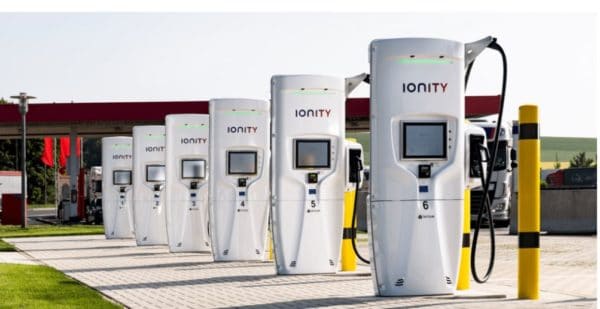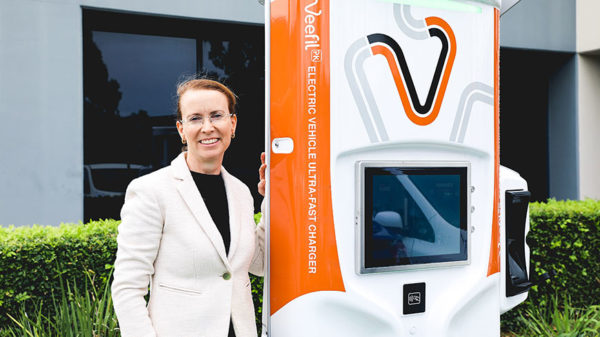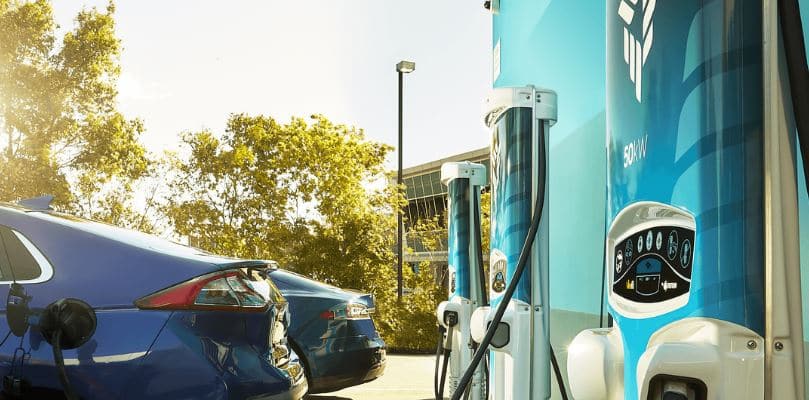Brisbane-based electric vehicle (EV) charging company Tritium has teamed with Decarbonization Plus Acquisition Corporation II (DCRN) in a transaction which is expected to provide approximately $520 million to help fund Tritium’s global operations and further growth.
The combined entity will be named Tritium. A SPAC is a company with no commercial operations formed to raise capital through an initial public offering (IPO).
Founded in Brisbane in 2001 by David Finn, James Kennedy and Paul Sernia, Tritium designs, develops and manufactures fast-charging DC technology for EVs.
The company said it has already secured a sales and support footprint in 41 countries across four continents and has provided more than 2.7 million high-power charging sessions, delivering more than 55 GWh of energy.
Tritium chief executive officer Jane Hunter said the DCRN transaction announced this week will allow Tritium to invest in a new production facility in Europe, expand its existing site in California and further develop the Brisbane facilities where the company is headquartered.
“We have offices in Amsterdam, we have offices in Los Angeles, and then we have the headquarters in Australia, and we have factories and warehouses at each of those sites,” she said.
“We will beef up production in Los Angeles and will open a new factory in Europe to service that market because that is 70% of our revenue (and) we will continue to build out of Brisbane to service the Asia-Pacific region.”
The former Boeing executive said Tritium is already servicing an extensive list of customers including Shell, BP, BMW and Ionity which has the largest fast-charging DC network across Europe.

Image: Tritium
“The majority of our customers are currently charge point operators, they’re the ones who operate a fleet of charge points, followed by that it’s probably fuel and utilities so it’s a very diverse customer base,” Hunter said.
“In terms of expansion, we just want to continue to capture those top tier customers and compete at that global level and have that blue-chip customer base.”
While the DCRN deal has provided a financial windfall for Tritium, Hunter admitted the company is “not currently profitable”.
“It’s been a company that’s been in start-up mode really for the last four to five years,” she said.
“So very typical company, from start-up seed funding into growth funding and now this next stage of our growth into becoming a global corporation.
“We’ve had investment to date of around $160 million and that investment has really been used to fund growth so we have a global footprint.
“You have to spend up money to get to where we get to and what we see is that in early 2023 we will be positive EBIT (earnings before interest and taxes) and free cash flow so we’re not too far off that.”

Image: Tritium
Hunter said Tritium is now ideally positioned to benefit from accelerating and sustained long-term growth of the global passenger EV market, which is projected to have a compound annual growth rate (CAGR) of nearly 20% through 2040.
Global EV charging hardware sales are projected to have an average CAGR of more than 25% each year over this period.
The company’s intellectual property includes the world’s only fully liquid-cooled, IP65-rated charger, providing customers with technology that is ingress-protected and sealed from outside elements, thus reducing the total cost of ownership.
“The accelerated electrification of the transport sector globally is now underway and has extraordinary implications beyond the benefits to individual consumers,” Hunter said.
“Our industry is essential to achieving global emission reduction targets both through increased adoption of electric vehicles and the deployment of EVs for mass energy storage technology.
“As batteries on wheels, EVs will help pave the way for more renewable power to be introduced into national energy mixes.”
DCRN chairman Robert Tichio, who will join the board of directors of the combined company at the close of the transaction, said Tritium’s demonstrated track record will allow it to maintain and expand its position as a market leader in the charging hardware space.
“The company has developed an incredible team of more than 340 employees on four continents and a diversified base of blue-chip customers, while positioning Tritium to be the leader in DC fast charging as the adoption of electric vehicles continues to accelerate,” he said.
This content is protected by copyright and may not be reused. If you want to cooperate with us and would like to reuse some of our content, please contact: editors@pv-magazine.com.









By submitting this form you agree to pv magazine using your data for the purposes of publishing your comment.
Your personal data will only be disclosed or otherwise transmitted to third parties for the purposes of spam filtering or if this is necessary for technical maintenance of the website. Any other transfer to third parties will not take place unless this is justified on the basis of applicable data protection regulations or if pv magazine is legally obliged to do so.
You may revoke this consent at any time with effect for the future, in which case your personal data will be deleted immediately. Otherwise, your data will be deleted if pv magazine has processed your request or the purpose of data storage is fulfilled.
Further information on data privacy can be found in our Data Protection Policy.